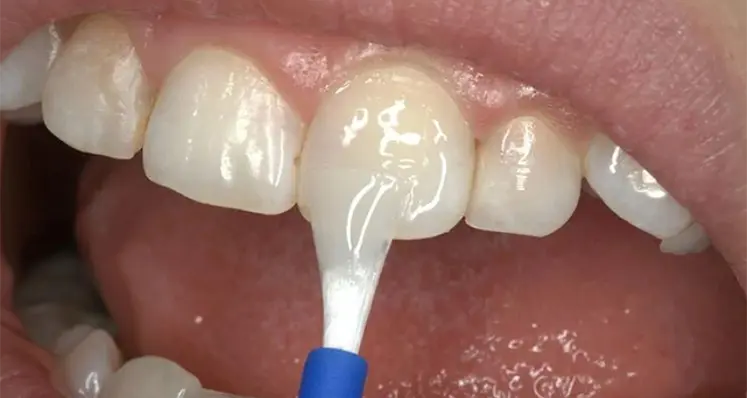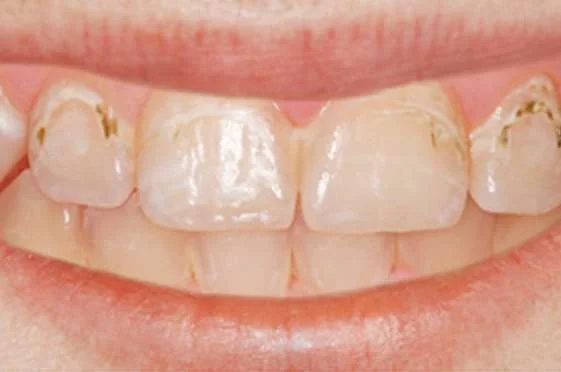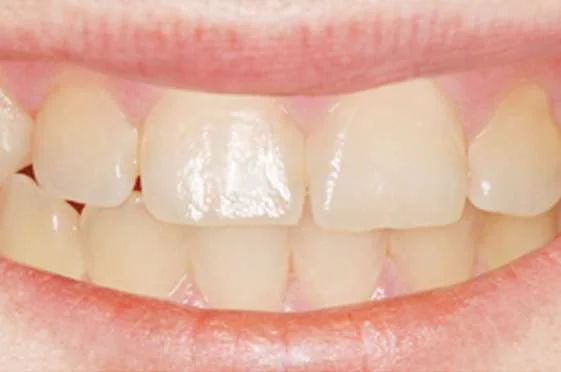
Fluoride Treatment in Gurgaon to Strengthen Teeth
Fluoride is a mineral that occurs naturally in many foods and water. Every day, minerals are added to and lost from a tooth's enamel layer through two processes: demineralization and remineralization. Demineralization occurs when acids, formed from plaque bacteria and sugars in the mouth, attack the enamel. Remineralization happens when minerals such as fluoride, calcium, and phosphate are redeposited to the enamel layer from the foods and water consumed. Too much demineralization without enough remineralization to repair the enamel layer leads to tooth decay.
At The Dental Cure, we offer top-quality fluoride treatments in Gurgaon or fluoride therapy in Gurgaon to help strengthen your enamel and prevent tooth decay. Our expert dental team ensures effective fluoride application to enhance your dental health.


Talk To A Dentist
DENTAL
CURE
WONDERING
WHAT IS BEST
FOR YOU?
In What Forms Is Fluoride Available
As mentioned, fluoride is found in foods and in water. It can also be directly applied to the teeth through fluoridated toothpastes and mouth rinses. Mouth rinses containing fluoride in lower strengths are available over-the-counter; stronger concentrations require a doctor’s prescription.
A dentist in his or her office can also apply fluoride to the teeth as a gel, foam, or varnish. These treatments contain a much higher level of fluoride than the amount found in toothpastes and mouth rinses. Varnishes are painted on the teeth; foams are put into a mouth guard, which is applied to the teeth for 1 to 4 minutes; gels can be painted on or applied via a mouth guard.
Fluoride supplements are also available as liquids and tablets and must be prescribed by your dentist, pediatrician, or family doctor.
When Is Fluoride Intake Most Critical
As mentioned, fluoride is found in foods and in water. It can also be directly applied to the teeth through fluoridated toothpastes and mouth rinses. Mouth rinses containing fluoride in lower strengths are available over-the-counter; stronger concentrations require a doctor’s prescription.
A dentist in his or her office can also apply fluoride to the teeth as a gel, foam, or varnish. These treatments contain a much higher level of fluoride than the amount found in toothpastes and mouth rinses. Varnishes are painted on the teeth; foams are put into a mouth guard, which is applied to the teeth for 1 to 4 minutes; gels can be painted on or applied via a mouth guard.
Fluoride supplements are also available as liquids and tablets and must be prescribed by your dentist, pediatrician, or family doctor.
What Our Customers Say About Dental Cure
FAQs about Fluoride Treatments
Fluoride therapy involves the application of fluoride to the teeth to strengthen the enamel, prevent tooth decay, and repair early signs of decay.
Fluoride helps to remineralize and strengthen the tooth enamel, making it more resistant to acid attacks from plaque bacteria and sugars in the mouth. This process helps prevent cavities and can reverse early tooth decay.
The frequency of fluoride treatments depends on your oral health needs. Generally, it is recommended to get fluoride treatments every six months during routine dental check-ups. Your dentist may recommend more frequent treatments if you are at higher risk for cavities.
Yes, fluoride treatments are safe when administered by a dental professional. The amount of fluoride used is carefully controlled to ensure safety and effectiveness.
Fluoride therapy is beneficial for people of all ages. Children, adults with a history of cavities, people with dry mouth conditions, those with braces, and anyone at higher risk for tooth decay can benefit from fluoride treatments.
Fluoride treatments can be applied as a gel, foam, or varnish. These are applied directly to the teeth during a dental visit and are more concentrated than the fluoride found in toothpaste or mouth rinses.
While fluoride toothpaste is beneficial for daily use, professional fluoride treatments provide a higher concentration of fluoride that is more effective in preventing cavities and strengthening tooth enamel.
Fluoride treatments are generally safe with minimal side effects. Some people may experience temporary tooth sensitivity after the treatment, but this usually subsides quickly.
A fluoride treatment typically takes just a few minutes to apply. After the application, it is recommended to avoid eating or drinking for at least 30 minutes to allow the fluoride to fully absorb into the enamel.
To maintain the benefits of fluoride therapy, practice good oral hygiene by brushing twice a day with fluoride toothpaste, flossing daily, and visiting your dentist regularly for check-ups and cleanings.
